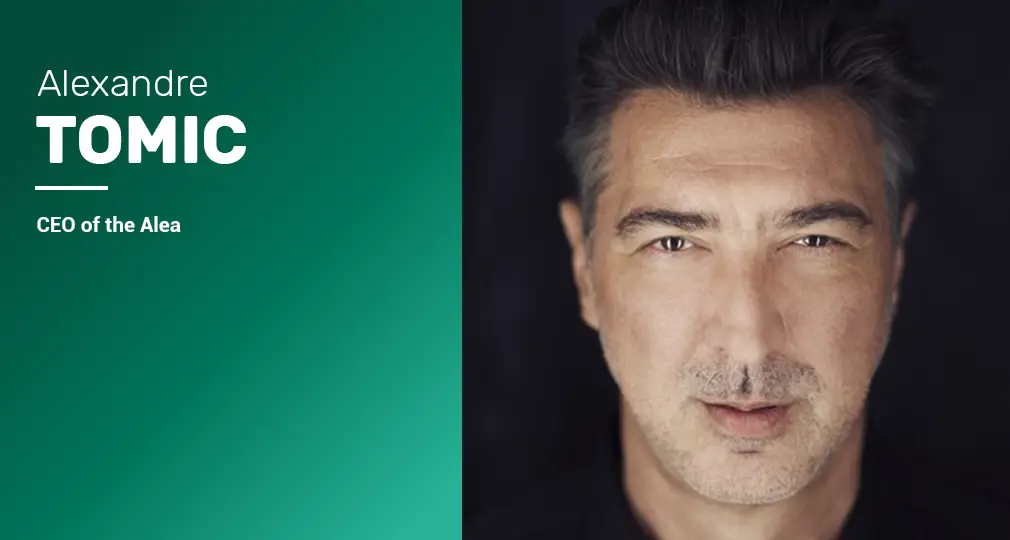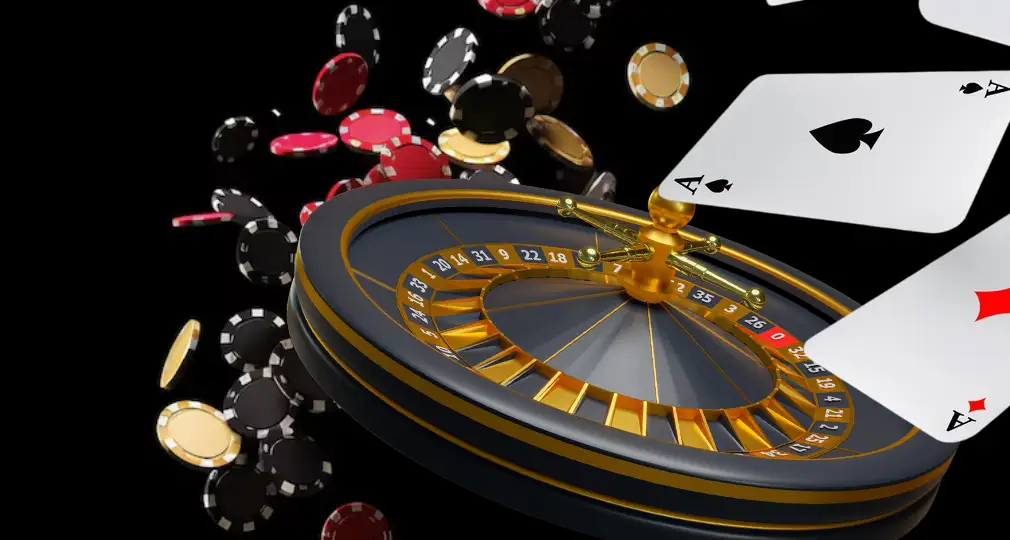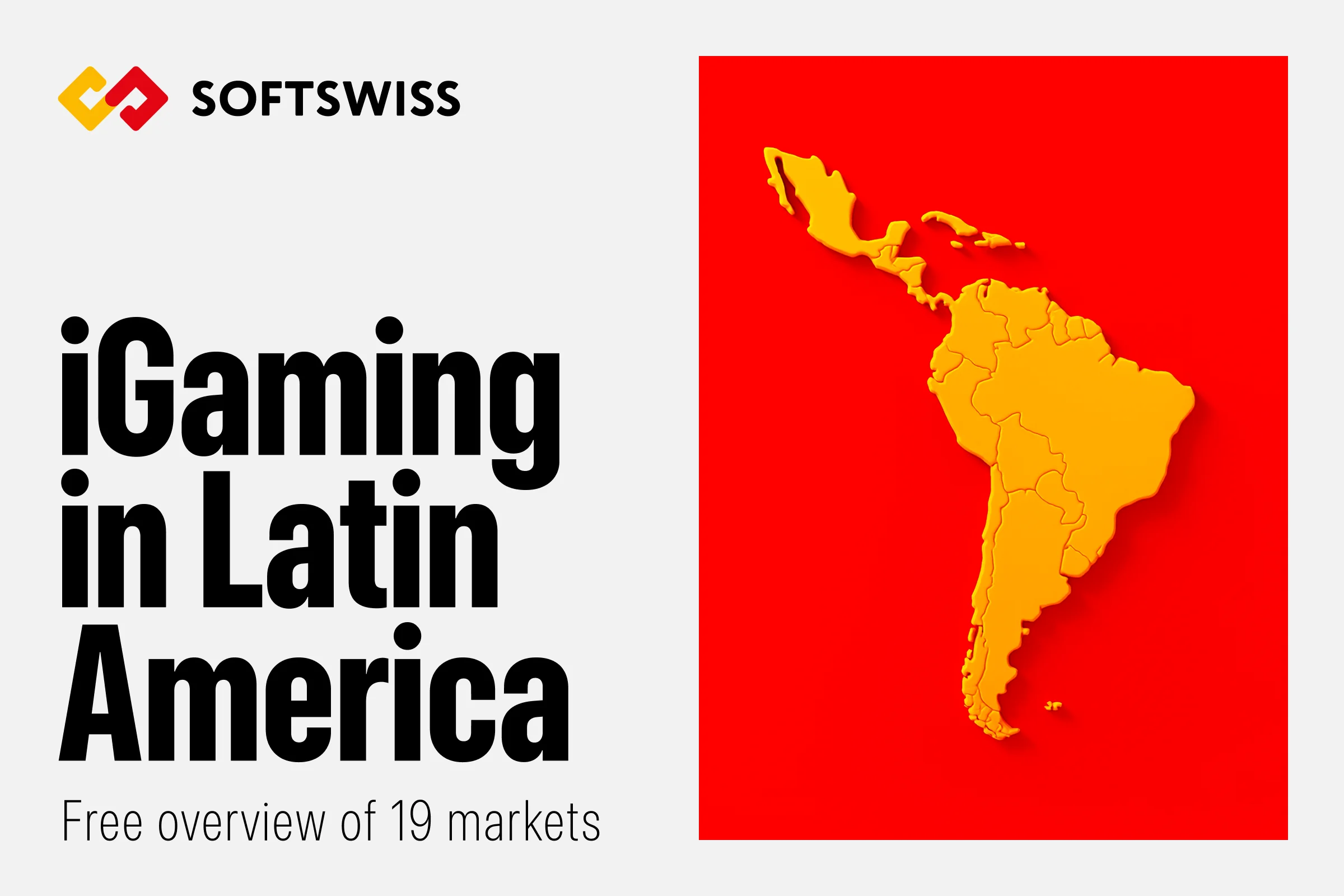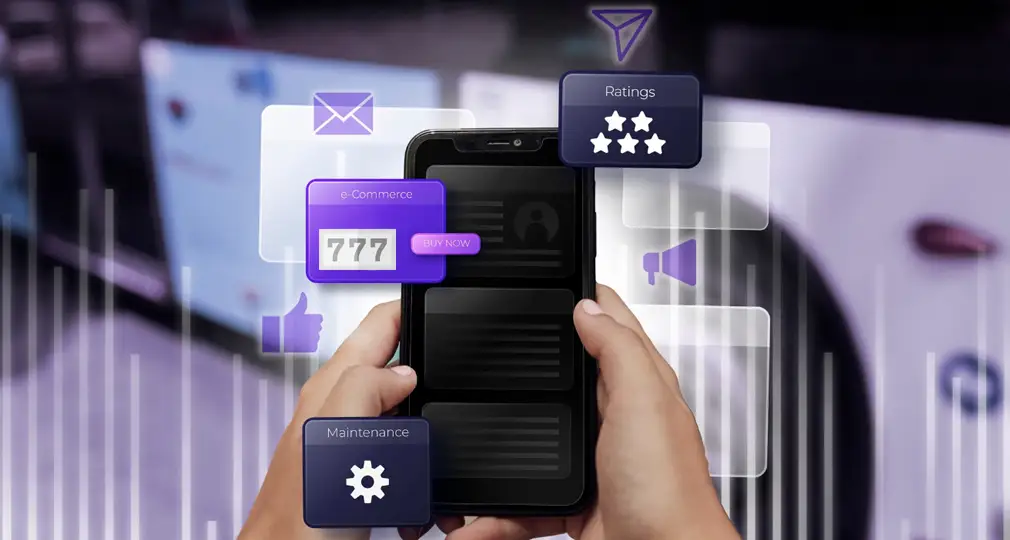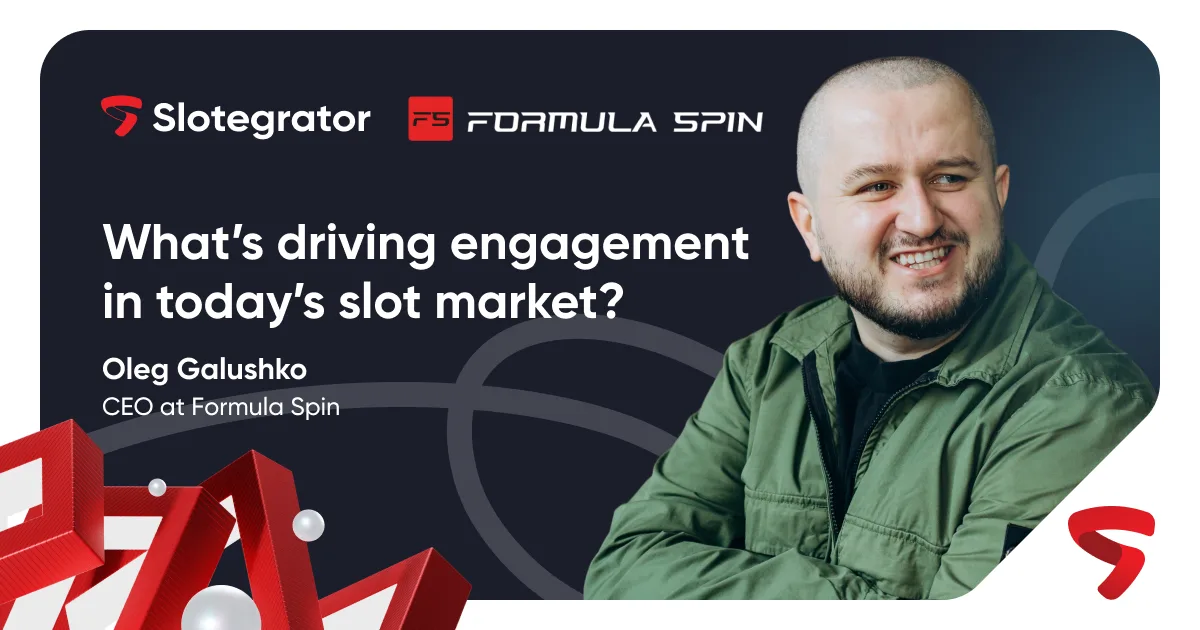As the term “metaverse” is becoming more popular than ever, virtual reality (VR) casinos may also soon rise to prominence.
To get more insights on the topic, Login Casino spoke with Alexandre Tomic, CEO of the Alea – a leading iGaming aggregator for online casinos. The expert has answered the most pressing questions about VR casinos, new trends in slot gaming, and shared plans for the future.
How would you describe this past year? Was it better than 2020 in terms of business?
Both years were very complicated because we shifted Alea from the B2C-only model to the B2B-only model. We split operations, I left SlotsMillion to my business partner and took Alea.
Starting a B2B business during a pandemic when you don’t have any shows is a little bit complicated. As a B2C, we are doing quite fine, but as a B2B, it was a little bit complex. When the shows came back in September 2021, we burned around half a million in four months. We used than money to be present at every single show. It was a very good investment. It’s hard to see everything yet, but we’re starting to see an array coming from SBC Barcelona, SBC CIS, and iGaming Special.
You were at the origins of implementing virtual reality in online casinos. Do you believe that initiative was a success? Is VR popular among the players nowadays?
Completely not. We did PR for it in 2015 but it was very early. I was talking to a VP of a business platform and he said: “VR is going to come to prominence seven years, in 2022”. I didn’t believe him and said: “Oh, come on! One or two years.” But he was right. Now Facebook has changed its name to Meta, everybody talks about metaverse, the new VR goggles are coming, so everybody is going to jump in VR this year. And within five years, you will probably spend more time in the metaverse than in the real world. Especially with the Covid situation. It is going to become a scenario a la Matrix.
So, we have built several versions of the VR project. We are actually refurbishing the last one. We even thought about selling as an NFT. For us, it is an RND project. We invested more than a million in that in two or three years between 2015 and 2018, more or less. And, for the moment, it’s a project that stands by. We closed the VR studio; we just have one of two developers that sometimes update the game. The main problem with this project, which occurs even before reaching mass subscription, meaning that enough gamblers are using VR, is a regulatory issue. All the VR platforms are populated with kids playing video games. So, if you go there with an online casino product, they’re not going to let you. In my opinion, getting there will be a bit complicated. So, we have it, we work on it sometimes, but really as an RND project.
How would you describe a virtual casino to a player that hasn’t experienced it yet but is very eager to try it? What makes VR a unique experience?
We’ve done something that nobody else has done, especially back in time, maybe today technologically it’s more feasible. We have managed to integrate the flashback content, web content inside the 3D unreal engine virtual reality environment. So, basically, you are in a beautiful huge space, which looks very art deco and a little bit like a Gotham City. It’s the second VR project that we’ve done, which wasn’t public. Everybody has seen the first one. But the second one is truly amazing: you go to the window and there are zeppelins flying up in the sky. Inside, there are hundreds of slot machines. And you sit behind one of these slots and you can just play your slot and talk to the guy next to you. It’s like in a real casino. The thing is that, actually, the slot is like a web browser. You can also go to two or four rooms, where you can play blackjack and roulette with dealers.
Then, you also have your personal room, where you have a giant screen, on which you can load any slot. You have trophies and things like that. Basically, it’s a tutorial place, where you can train yourself to play in virtual reality. It’s really addicting. I mean, you can stay there for hours because it’s a beautiful environment. Also, you can watch YouTube there. For example, you have a watch on your wrist and you can open a window, on which you can load any content from the web. So, you can put Netflix or YouTube. And you can watch it at the same time you play slots. You can put this screen in the air on your right or left side. This screen can be any size you want.
We, actually, presented this project at conferences in Barcelona and Amsterdam. But we didn’t bring it to SIGMA, because we couldn’t render it properly due to the poor connection.
Do players who have come to love VR come back to classic casinos or is it no longer in their gambling routine?
Actually, we couldn’t offer a VR casino on a player base. It was more an experiment that we brought to conferences. It was online but we couldn’t put it in a game VR store. We can’t place it in Oculus Store, we can’t put it in Steam because of restrictions in online gaming. So, today, there is no way to reach players with a VR online casino. The only one that exists today (there are two or three, but this is the most important one) is PokerStars. But it’s poker games with no real slots and it’s for free. So, we thought about that and there is an option to make a free version of it. It is something we are still considering: to make Alea a VR casino, the one we are today, just with demo games.
Which trends would you highlight in so-called slot fashion? Which features are currently popular among the players?
What I see coming are multiplayer slots. That’s the thing that we should see in 2022, whether it is through live streams or Beyond Play. Multiple companies are working on that, we also have our own project there.
Also, my guess would be P2P slots whether it’s competitive or collaborative, like syndicates. You play together to win a big prize. Let’s say, the spin is €50 and you have 50 players putting €1 in order to be able to go for a €50 spin that can give them 10 million jackpots that otherwise they couldn’t get. Or slot tournaments where gamblers play against each other. That’s the big trend I see, we call it social gaming. There are multiple options: gamers play together, they play against each other, they play in teams together against each other. The possibilities are endless.
In your opinion, what are the problems and issues that online providers and operators of online casinos and other types of virtual gambling entertainment face nowadays?
What I see from the slot operator perspective is collusion on bonus. Let me put it simply. A player will have a welcome 100% bonus on a deposit of up to €100. And after that, they would have smaller bonuses. So, what players do is they register 100 accounts with the same player behind. So, basically, the player would get a €10k bonus on deposits. Imagine another player would put €10k plus €100 bonus, or maybe he reaches a €500 bonus with 10k. But here it is €10k + €10k.
And, then, what they do is they put everything on red or black on roulette. By the start, you will have 36 numbers that are going to lose and one that is going to win. So, the one that is going to win is going to make basically a win of €3.6k with a €100 spin. In 100 players, you’re going to have 3 that’s going to do that. So, you’re already going to get back to your €10k deposit.
But then what’s going to happen is that they are going to play with bonus funds on accumulated bonus slots. These players and going to fill these slots with bonus money and when they reach the bonus, just before reaching it, they close the slot and do that with another slot. And then they make another small deposit of real money. They go back to the slot that plays with real money and they trigger the bonus round with that money but the slot has been filled with bonus money. And that’s how they can make extraneous amounts of money out of operators. And ops wouldn’t see that even for years, software providers wouldn’t care because they get paid anyway by the operator. The operator’s margin would go down and that’s collusion. And when you would explain that to any operator or software provider they would laugh and say that collusion is not possible on a slot game. But when you put these factors together, it becomes clear that collusion is very possible in a slot game. It is basically 100% bonus money on deposit, the fact that then you play the red or black on roulette and you lose or you win, and then the fact that if you win – you win real money, and if you lose – you go and play accumulative slots. When you take this mechanism together, you have a machine, which is actually a bomb for a casino. So, that’s what I see.
The other thing is I see, which is a little bit similar, is live gaming. On a normal roulette, you cannot play position on more than 30-50% of the table. But in live roulette, you don’t know other people at the table. Maybe, it is the same guy. So, if it is one casino, in a normal roulette, a player plays against one instance of a roulette, but in live roulette, they can be in one casino all the players play against the same roulette. At some point, ops can identify players at their casino, time after time they come back together, etc., etc. But if they are at the different casinos playing at the same roulette from one provider you cannot identify them. And you can have collusion. Gamblers can without any problem play safe bets on the same roulette from different casinos. So, that’s the big issue I see today, related to games. I’m not talking about regulations, affiliate traffic that is getting more and more expensive, etc. Because I’m an aggregator, I’m talking from a game perspective.
You can identify collusion at online casinos but it is very complicated. Because the gamblers play on the same roulette from one software provider but at several casinos. An operator needs to have people in your teams that are aware of the problem. They also need to have a holistic approach to collusion. Before ops used to look at the IP address, credit cards, and things like that. But they wouldn’t look at game patterns. And the guys that would look at the game patterns won’t look at the other things. The game department on the one side would be separate from the payment and fraud department on the other side. So, you wouldn’t have someone who would check all of that. There is, however, a team of ex-fraudsters who have developed a consultancy. Now they help casinos to fight fraud and bonus abuse.
Standard but always an interesting question – what plans do you have for Alea Play? What are your goals from a short-term and long-term perspective?
We want to focus on delivering the best game aggregation services. That is something we’ve discovered when we built our aggregator platform as an operator. We started as an operator, we know exactly what an operator needs, and we also know the challenges of doing game aggregation.
Back in time, to launch a gambling platform, you would need only one software. And then we started developing web casinos with multiple software providers on one platform and making API integrations. In the beginning, the integration was simple, you would have 10-20 fields. But then it became more and more complex: adding free spins, tournaments, rollbacks – a lot of new features. And when you have this kind of integration and you want to do basic things in the game analysis (for example, to know if there is a bonus abuse or not), you need to have what’s called purity of data. In your integration, you need to have the bets that are segregated between bonus bets and real bets, and bonus win and real win. You also need to have as much data as possible in your integration. And what we know today is that most of the operators don’t do these integrations properly. Because it’s not their business. They can’t be good at everything: payments, games, etc.
Games are becoming more and more complicated today. If you have to do 50 integrations it’s going to take you two years to sign the contracts, a lot of money for fees, a lot of time to do the integration. But once you do that, you think that it is over and stop. But you need to integrate more and more new software, but the worst thing is that you would need to maintain the existing ones. You need a team of 50 people just to do that. So, basically, what we want is to show that today we are the best gaming aggregator on the market in terms of purity of data and platform stability of the platform. We believe that technically we are the most advanced because we’ve done that for more than 10 years as a B2C.
Read more: Betting Affiliate Programs






